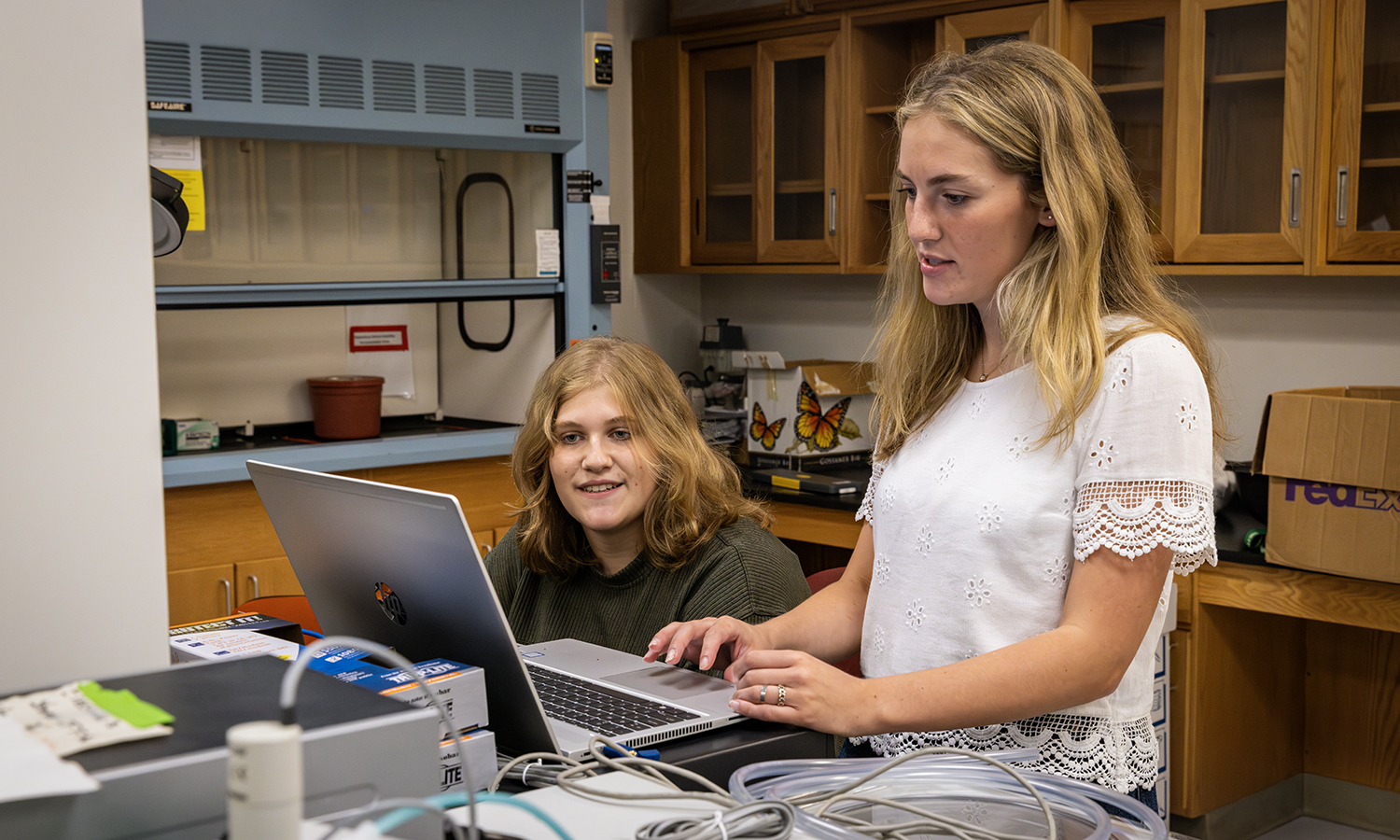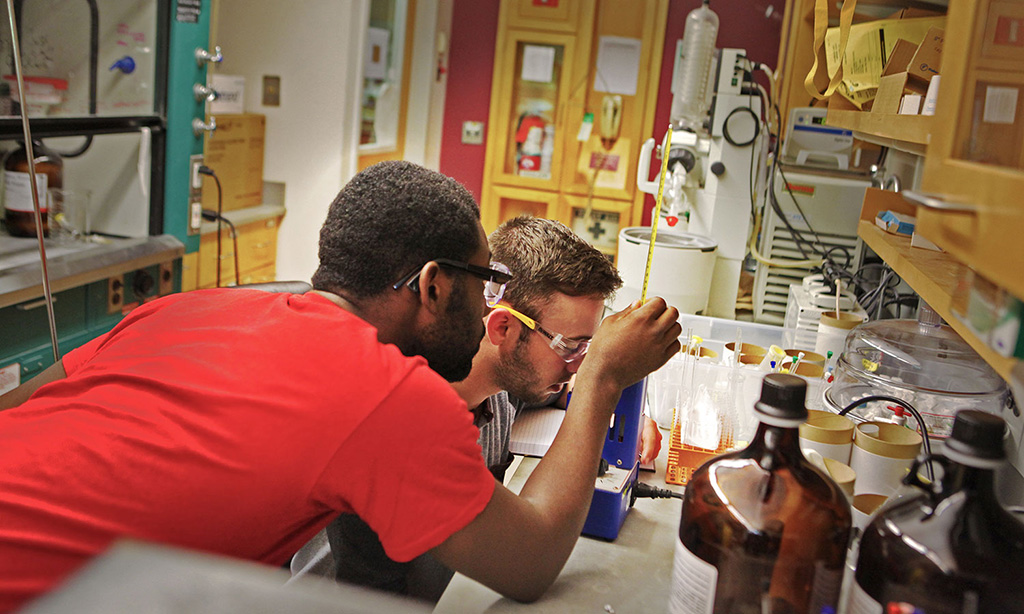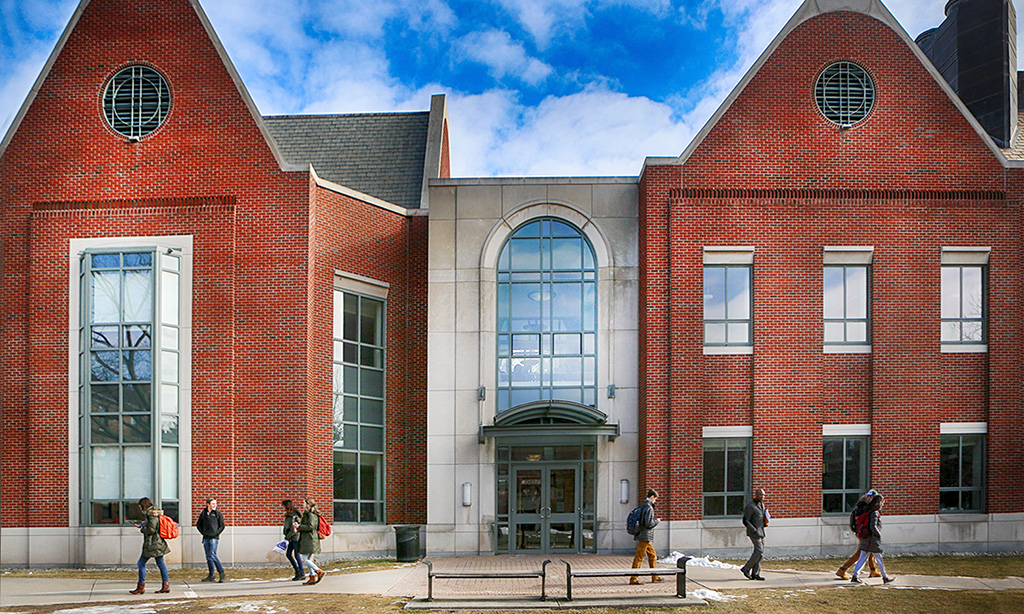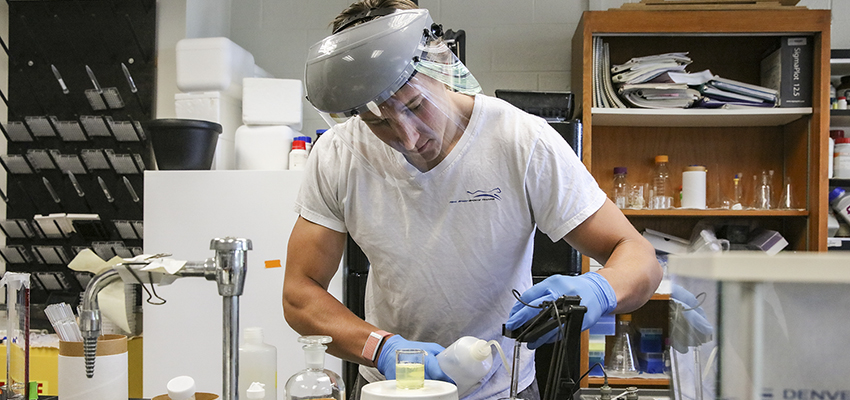Student SpotlightCutting Edge Research

Students studying Biochemistry and Biology conducted research, worked alongside agricultural specialists and gained valuable laboratory experience and scientific insights through Cornell AgriTech.

Combine your interests in biology and chemistry into one major with Biochemistry. You’ll learn from core courses in those two departments along with math and physics courses, finishing off with a capstone seminar. Faculty research interests include synthetic chemistry, analytical chemistry, computational chemistry, the chemistry and pharmacology of alcohol, enzyme kinetics, microbiology, pathogenicity, protein interactions, gene expression, and development. Develop your own research interests while joining faculty on a wide range of projects to create anti-cancer compounds, protect crops from infection, replace silicon chips with inorganic molecular wire candidates, and better understand the development of sight, among other topics.

Students studying Biochemistry and Biology conducted research, worked alongside agricultural specialists and gained valuable laboratory experience and scientific insights through Cornell AgriTech.
Biochemistry students looking to engage more in their work can pursue Honors and research projects in a chosen topic with the guidance of a faculty mentor.
Past examples of Honors projects include:

Get hands on experience that prepares you to work in the health professions or engage in research with environmentalists on the effects of harmful algal blooms in the Finger Lakes.
At Hobart and William Smith Colleges, learning goes beyond textbooks and classrooms. You’ll gain high-impact practical experience that deepens learning and opens doors.
![$intro-image[2]/descendant::img/@alt](/images/academics/bche/abroad.jpg)
Study molecular chemistry in Australia or cellular multiplication in England.
Wherever you go, our top-ranked global education program will allow you to apply classroom knowledge, develop cultural understanding and build global connections that expand your personal capacity and sense of purpose.

Build a foundation in Biochemistry, then pursue your specific interests within the department.
Gain the fundamentals to the study of organic molecules, in addition to structure, mechanism, reactions, synthesis, and practical methods for structure determination.
Explore the complex, multi-disciplinary and evolving field of immunology, including cellular immunology, molecular immunology and the immune system and diseases.
As the first of a two-part course, develop your understanding of the structure, function, and physical properties of biological macromolecules.

At HWS, you’ll study biochemistry with some of the best equipment available, and that’s not just our word.
Rosenberg Hall, where the biochemistry department is located, was described “among the best – if not the best-designed undergraduate science teaching-learning, research facilities we have ever seen” by The Council on Undergraduate Research.
Between Rosenberg Hall and adjoining Lansing Hall, there are six instructional labs, five student-faculty research laboratories, three instrument rooms, a prep room, chemical storage rooms and a computer lab to make use of.
Additionally, you can study biochemistry on the water aboard the William Scandling research vessel and take use of equipment like high-resolution sub bottom profiler, side-scan sonar and current meters.

Through the Guaranteed Internship Program, Alec was able complete a summer research project that would be the catalyst for building his interest in research, leading him all the way to medical school.